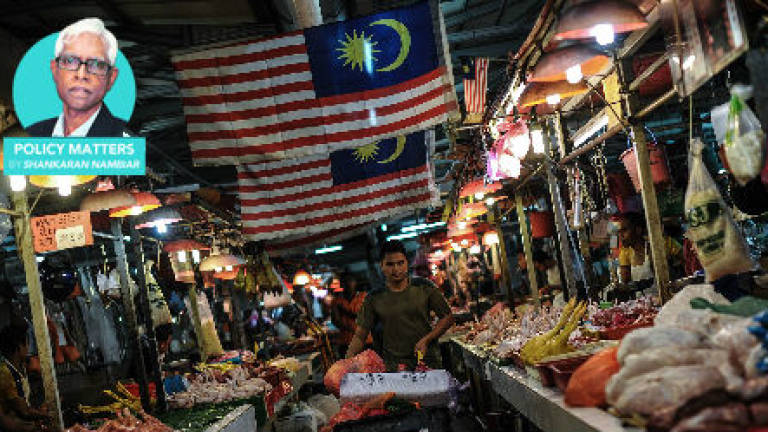Poverty goes to the night market

IS it time to hate Tan Sri Dr Irwan Siregar, the secretary-general of the Ministry of Finance? Irwan has suggested that the way out of poverty is entrepreneurship.
He cited the example of migrants who have made good as petty traders in Chow Kit to illustrate how the disadvantaged can, through their own efforts, seize the opportunities thrown by the market system.
Irwan's point is this. If foreign workers with absolutely no endowments can secure a reasonable income through sheer dint of hard work and entrepreneurship, why can't Malaysians.
This is an important message from an important man.
At its core, on one interpretation, is the following unspoken text. Do not depend on the government; you cannot continually depend on the government; you have to take responsibility for your well-being. This is a harsh world and you have to do battle for yourself. Use the market to your advantage, if you can.
Alongside this message, one should note that Irwan, given his position, worked towards formulating the BR1M policy.
On the face of it, the man who had a hand in designing a system of targeted subsidies, now turns his back on handouts.
Why this sudden back flip?
After years of fiscal imprudence, wasteful public investments, and an educational system that has not put Malaysia on the technological forefront, the future of government support lies in doubt.
The flow of government revenues may not be what it was for some time to come, maybe for a long time to come.
If public debt cannot be contained or brought down, there will have to be a gradual tightening of government subsidies.
In time to come, subsidies will have to be cut (or more politely, rationalised), government expenditure reduced, and taxes raised. Not that this scenario has not already made its entrance.
Irwan in a rather blunt and dramatic manner, possibly, wants to prod people out of the culture of dependency. Who, 20 years ago, would have imagined that Malaysia's oldest university would have to take a 30% cut?
That is the direction in which we are heading, although there are good reasons why education and healthcare should be protected from crass commercial interests. As it is, there are fewer scholarships to study abroad, student loans are less generously given, and there are fewer vacancies in the public service sector to accommodate the ever-increasing number of graduates.
Government institutions that thought that their responsibility was to solely focus on how to spend their allocations will now have to function differently. Public universities must now raise funds. In time, people must work on being job creators rather than job seekers.
Many questions will have to be answered as we slide into the new state of affairs.
At the limit, or as government largesse diminishes, how will ethnic considerations be traded off against need and social inclusion?
Groups that have relied very heavily on government support will suffer from the withdrawal of support and subsidies. This can create discontent. How will the transition be managed?
Will meritocracy, productivity and outcome-based processes ever matter?
Will entrepreneurship be the favoured instrument to reduce inequality? And will government support for entrepreneurship be open to all aspiring entrepreneurs or will it be restricted on the basis of selected criteria?
Entrepreneurship is set to be the new game in town. At least a new game for those accustomed to the culture of dependence.
Dr Shankaran Nambiar is author of Malaysia in Troubled Times. Comments: letters@thesundaily.com